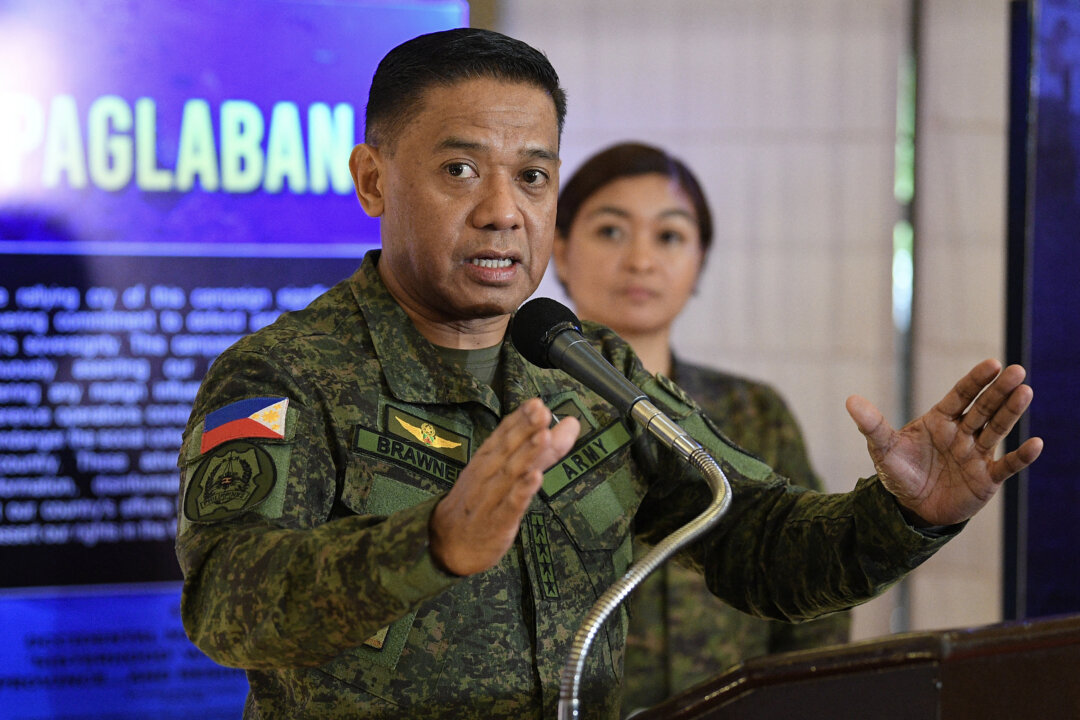The Philippine Army, Navy, and Air Force began two weeks of joint force exercises in the South China Sea on Nov. 4, which will include island-seizing drills, according to military officials.
“Our mission today is very clear, to prepare ourselves comprehensively to respond to any external threats that might challenge our sovereignty,” Armed Forces of the Philippines Chief Gen. Romeo Brawner Jr. said at the opening ceremony of the exercises.
Philippine military officials have said that the drills are not specifically targeted toward any country.
However, Beijing has repeatedly accused Manila and its allies of disrupting the region when they conduct drills and patrols in the South China Sea, a highly contested area.
The Chinese communist regime claims almost all of the waters as its own, which violates international law and has led to several confrontations with foreign vessels, including those of the Philippine Coast Guard.
Philippine Army Col. Michael Logico told reporters during the ceremony that Chinese surveillance will be expected during the exercises.
“They have a front seat to the exercise. They’ll watch, and we don’t mind,” Logico said.
He said the exercises will include live-fire artillery and assault rifle drills, as well as beach landing exercises. He did not elaborate on plans to conduct island-seizing drills.
The Chinese military has increased its presence and confrontations in the South China Sea this year, even breaching undisputed foreign territory.
These clashes have occurred in the Sabina Shoal and Second Thomas Shoal. The Philippines asserts that these locations are within its 200 nautical mile exclusive economic zone, as recognized by international law. The Chinese regime claims these areas as its own.
From 2013 to 2015, China built artificial islands spanning 3,000 acres in the Spratly Islands coral reefs, giving it a regular presence in the area.
The United States and its allies have also increased joint drills in the Indo-Pacific, expressing concern over Chinese military activities in the region.
Last month, Secretary of State Antony Blinken said the United States is committed to “support freedom of navigation and freedom of overflight in the Indo-Pacific.”
“We remain concerned about China’s increasingly dangerous and unlawful actions in the South and East China Seas, which have injured people and harmed vessels from ASEAN nations, and contradict commitments to peaceful resolution of disputes,” Blinken said at the 12th Southeast Asian Nations–U.S. Summit.
The Associated Press contributed to this report.

